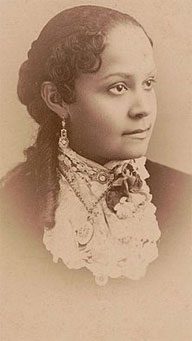
Submitted by Library of Congress
While Seneca Falls is considered the first American convention to focus exclusively on women’s rights, the first convention to consider women’s rights as an issue was the May 9, 1837, Anti-Slavery Convention of American Women in New York City. Several African American women attended this convention, but no known African American women attended Seneca Falls. The first and second generation of African American suffragists, of which Mary Ann Shadd Cary, Harriet Forten Purvis, and Sarah Parker Remond are a part, had strong ties to the abolitionist movement and believed in universal suffrage—voting rights without regard to race, gender, education, or economic status.
The passage of the Nineteenth Amendment in 1920 did not guarantee full voting rights for all women—women of color especially had additional struggles ahead. Recent and ongoing scholarship has uncovered detailed and complex histories of African American women in the suffrage movement, but there is still much work to be done regarding all women of color. The contributions of Asian American, Latina, and Native American suffragists are just beginning to be examined by scholars.
For African American suffragists the links between racial justice and women’s rights were central to their activism. In the early twentieth century, relatively few Black women participated in (or were permitted to participate in, due to racism) the primarily white women’s suffrage associations of the NAWSA and the NWP. Instead, black suffragists organized within the National Association of Colored Women (NACW); religious organizations such as the Woman’s Convention of the National Baptist Convention; and local women’s clubs and suffrage leagues.
The Library of Congress’s vast collections can be mined creatively in order to make fresh discoveries related to the participation of women of color in the suffrage movement. By asking new questions of existing collections, materials related to women of color in the early twentieth-century women’s suffrage movement can be recovered. Community archives projects and contributions to crowdsourced transcription, such as the Library of Congress’s By The People website, can also uncover different perspectives within the collections.


Be the first to comment